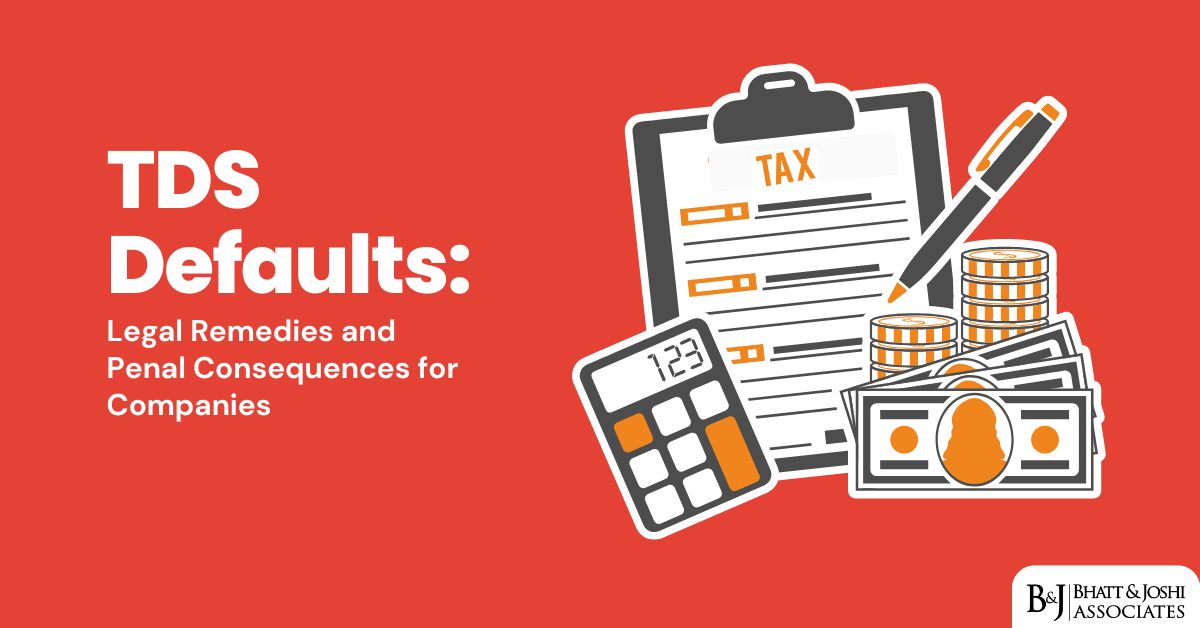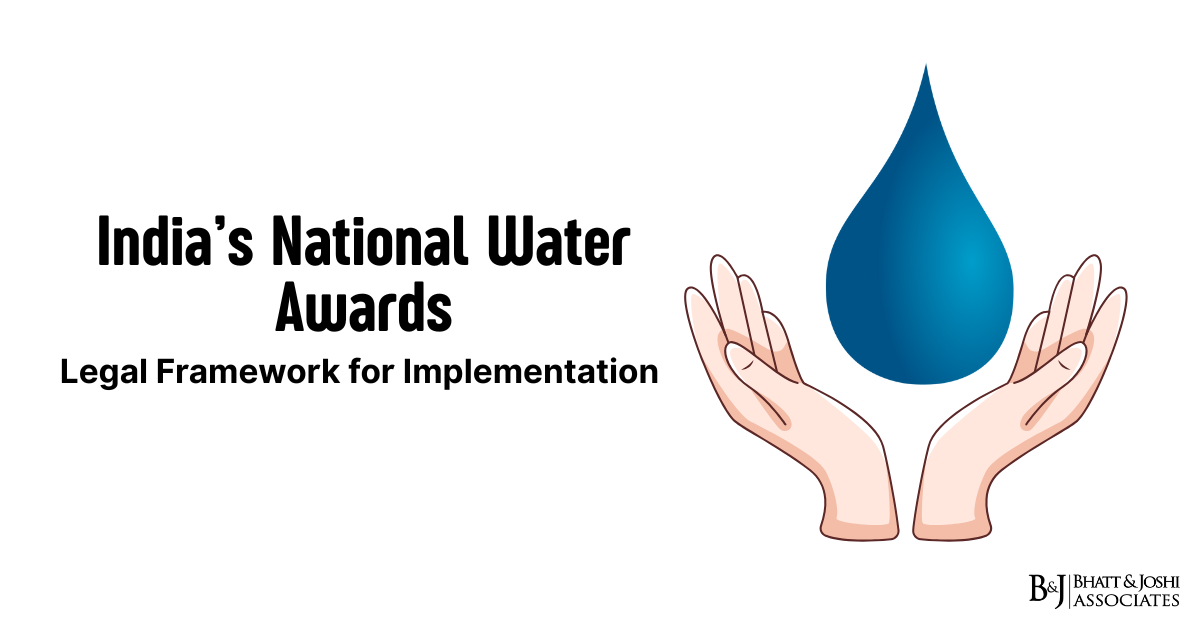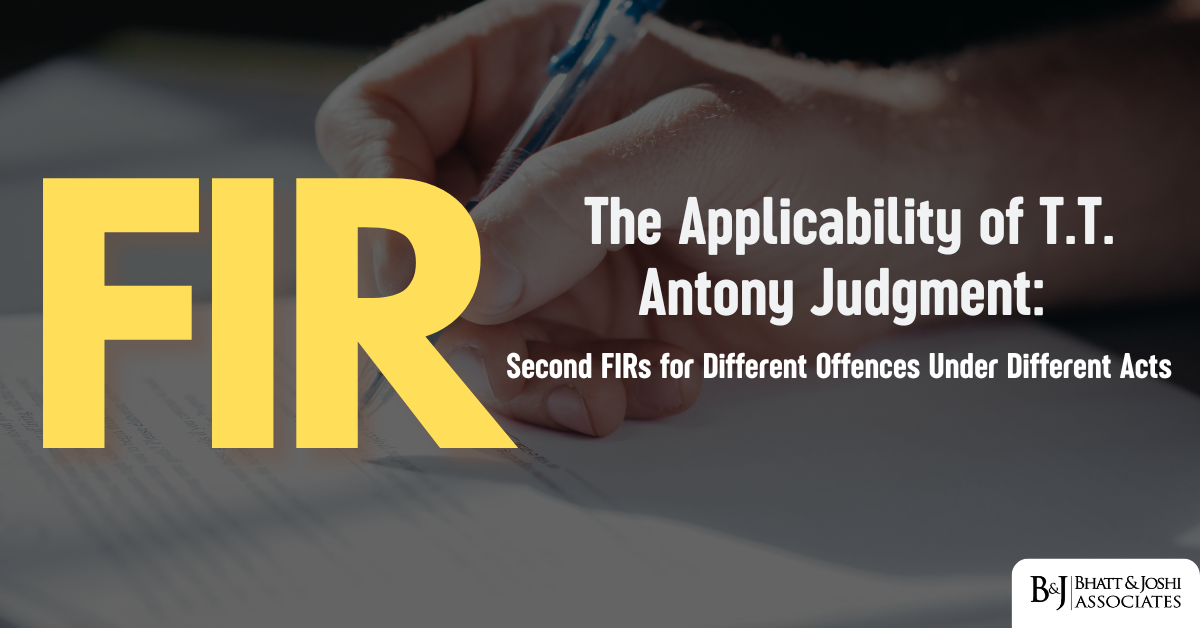Introduction
Tax Deducted at Source (TDS) forms a critical component of India’s direct tax collection mechanism, designed to ensure the timely and consistent flow of revenue to the government while minimizing the burden of lump-sum tax payments on taxpayers. Under this system, certain entities, including companies, are designated as “deductors” with the statutory obligation to deduct tax at prescribed rates from specified payments and deposit such tax with the government treasury within stipulated timeframes. This mechanism, governed primarily by Chapter XVII-B of the Income Tax Act, 1961, ensures tax collection at the very source of income generation, thereby reducing the scope for tax evasion and enhancing administrative efficiency. However, the practical implementation of TDS provisions presents numerous challenges for companies, leading to various forms of defaults – whether inadvertent or deliberate. These defaults can range from failure to deduct tax, short deduction, late deposit of deducted amounts, or non-compliance with associated procedural requirements. The consequences of such defaults are multifaceted, encompassing financial penalties, prosecution of responsible individuals, and potential business disruptions.This article provides a comprehensive analysis of the legal framework governing TDS defaults, examining the nature and scope of penalties, interest charges, and prosecution provisions applicable to defaulting companies. It further explores the remedial mechanisms available to companies facing TDS-related challenges, including statutory remedies, judicial recourse, and administrative relief options. Through an examination of landmark judicial precedents and evolving administrative practices, the article aims to provide clarity on this complex yet critical aspect of corporate tax compliance.
Legal Framework Governing TDS Obligations
Statutory Provisions
The TDS framework finds its primary statutory basis in Chapter XVII-B (Sections 192 to 206) of the Income Tax Act, 1961. These provisions delineate various categories of payments subject to TDS, the applicable rates, time limits for deduction and deposit, and compliance requirements. The key sections include:
- Section 192: TDS on Salaries
- Section 194A: TDS on Interest other than interest on securities
- Section 194C: TDS on Payments to Contractors
- Section 194H: TDS on Commission or Brokerage
- Section 194I: TDS on Rent
- Section 194J: TDS on Professional or Technical Services
- Section 194Q: TDS on Purchase of Goods
- Section 195: TDS on Payment to Non-residents
Section 200 establishes the obligation to deposit deducted tax with the government:
“Any person deducting any sum in accordance with the foregoing provisions of this Chapter shall pay within the prescribed time, the sum so deducted to the credit of the Central Government or as the Board directs.”
Section 200A empowers the tax authorities to process TDS statements and determine tax payable or refundable:
“Where a statement of tax deduction at source or a correction statement has been made by a person deducting any sum (herein referred to as deductor) under section 200, such statement shall be processed in the following manner, namely:— (a) the sum deductible under this Chapter shall be computed after making the following adjustments, namely:— (i) any arithmetical error in the statement; or (ii) an incorrect claim, apparent from any information in the statement;”
Procedural Requirements
The procedural aspects of TDS compliance are governed by the Income Tax Rules, 1962, particularly Rules 30 to 37. These rules specify:
- Time limits for deposit: Rule 30 prescribes that tax deducted must be paid to the credit of the Central Government within seven days from the end of the month in which the deduction is made, except for tax deducted under Section 194-IA, 194-IB, 194M, and 194S.
- TDS Certificates: Rules 31, 31A, and 31AB mandate the issuance of TDS certificates to deductees and filing of TDS returns with tax authorities.
- Form 26AS: Rule 31AB read with Section 203AA requires maintenance of tax credit statements for all deductees.
- Quarterly Statements: Rule 31A mandates filing of quarterly TDS statements in Form 24Q (for salaries), 26Q (for non-salary payments to residents), and 27Q (for payments to non-residents).
TDS Defaults and Their Types
TDS defaults can be categorized into several distinct types, each attracting specific consequences:
- Failure to Deduct: When a deductor fails to deduct tax where mandated by law.
- Short Deduction: When tax is deducted at a rate lower than prescribed.
- Failure to Deposit: When deducted tax is not deposited with the government within prescribed time limits.
- Late Deposit: When deducted tax is deposited after the due date.
- Non-filing or Late Filing of TDS Returns: When quarterly statements are not filed or filed after the due date.
- Non-issuance of TDS Certificates: When TDS certificates are not issued to deductees within the prescribed period.
Penal Consequences for TDS Defaults
Interest Charges of TDS defaults
The Income Tax Act imposes interest charges for various types of TDS defaults:
- Interest under Section 201(1A)(i): Simple interest at 1% per month or part thereof on tax amount not deducted or deducted but not paid to the government account.
- Interest under Section 201(1A)(ii): Simple interest at 1.5% per month or part thereof where tax has been deducted but not deposited within the due date.
The interest liability continues until the date of actual payment, and unlike penalties, the interest charge is mandatory with no discretionary power granted to tax authorities for waiver or reduction. In Commissioner of Income Tax v. Eli Lilly & Co. (India) (P.) Ltd. (2009) 312 ITR 225, the Supreme Court clarified:
“The liability to pay interest under Section 201(1A) is a statutory obligation that arises automatically upon default in deducting tax at source or in paying the tax so deducted. It is compensatory in nature and not penal, aimed at recompensing the Revenue for the loss suffered due to the tax amount not being available for use.”
Penalties for TDS Defaults
The Income Tax Act prescribes various penalties for TDS defaults:
- Penalty under Section 221: Where a deductor is deemed to be an assessee in default under Section 201, a penalty may be imposed not exceeding the amount of tax in arrears.
- Penalty under Section 271C: Equal to the amount of tax that the deductor failed to deduct or pay.
- Penalty under Section 271H: For failure to file TDS statement within prescribed time, ranging from ₹10,000 to ₹1,00,000.
- Penalty under Section 272A(2)(g): ₹100 per day of default for failure to furnish TDS certificate within the prescribed time.
- Penalty under Section 272BB: For failure to apply for TAN or quoting incorrect TAN, up to ₹10,000.
The imposition of penalties, unlike interest charges, involves an element of discretion. Section 273B provides for non-imposition of penalty where the taxpayer proves that there was reasonable cause for the failure. In Commissioner of Income Tax v. Triumph International Finance (I) Ltd. (2012) 345 ITR 270, the Bombay High Court observed:
“The expression ‘reasonable cause’ in Section 273B must be construed liberally in accordance with the objective which the provision seeks to achieve. What is reasonable cause would depend upon the circumstances of each case. Technical breaches, inadvertent or unintended mistakes, clerical errors, and bona fide interpretations may constitute reasonable cause.”
Prosecution Provisions for Serious TDS Defaults
Beyond financial penalties, the Income Tax Act provides for prosecution in cases of serious TDS defaults:
- Section 276B: Failure to pay tax deducted at source to the credit of the Central Government – rigorous imprisonment from three months to seven years and fine.
- Section 277: False statement in verification – rigorous imprisonment from six months to seven years and fine.
- Section 278: Abetment of false return – rigorous imprisonment from three months to three years and fine.
In Madhumilan Syntex Ltd. v. Union of India (2007) 290 ITR 199, the Supreme Court emphasized the serious nature of TDS defaults that warrant prosecution:
“The offence under Section 276B is a serious economic offence against the society. The money deducted as tax at source is the property of the Government held in trust by the deductor. Any failure to deposit the same with the Government amounts to breach of trust and is liable to be punished.”
Disallowance of Expenses Due to TDS Non-Compliance
Section 40(a)(i) and 40(a)(ia) provide for disallowance of expenses in the computation of business income where TDS requirements have not been complied with:
- For payments to non-residents under Section 40(a)(i), 100% disallowance if tax is not deducted or, after deduction, not paid within the due date of filing return.
- For payments to residents under Section 40(a)(ia), 30% disallowance if tax is not deducted or, after deduction, not paid within the due date of filing return.
The disallowance can be reversed in the subsequent year when the tax is actually paid. In CIT v. Hindustan Coca Cola Beverage (P) Ltd. (2007) 293 ITR 226, the Delhi High Court clarified:
“The disallowance under Section 40(a)(ia) operates as a temporary disallowance, to be allowed as a deduction in the year in which the tax is paid. This provision serves as an additional enforcement mechanism to ensure TDS compliance, rather than a penalty provision.”
Impact on Corporate Operations
Business Continuity Challenges from TDS Defaults
TDS defaults can significantly impact a company’s business operations in several ways:
- Cash Flow Disruptions: Penalties and interest charges can strain liquidity, particularly for small and medium enterprises.
- Administrative Burden: Rectification processes demand significant time and resources, diverting attention from core business activities.
- Banking Restrictions: Banks may refuse to allow deductions for companies marked as TDS defaulters, affecting operational payments.
In Larsen & Toubro Ltd. v. State of Jharkhand (2017) 392 ITR 80, the Supreme Court acknowledged the potential business disruptions:
“The consequences of being declared a defaulter under the TDS provisions extend beyond mere financial penalties. They can affect a company’s ability to operate effectively, access banking services, and maintain business relationships.”
Reputation and Compliance Rating
The Central Board of Direct Taxes (CBDT) introduced a TDS/TCS Compliance Evaluation System in 2022, assigning compliance ratings to deductors based on their TDS performance. This rating impacts:
- Vendor Relationships: Companies with poor TDS compliance ratings may face scrutiny from clients and vendors.
- Banking Relationships: Banks consider TDS compliance ratings in credit assessments.
- Regulatory Scrutiny: Low ratings increase the likelihood of detailed assessments and audits.
Personal Liability of Directors and Officers
Section 278B establishes that where a company commits an offence under the Income Tax Act, every person who was in charge of and responsible for the conduct of the business at the time of the offence shall be deemed guilty:
“Where an offence under this Act has been committed by a company, every person who, at the time the offence was committed, was in charge of, and was responsible to, the company for the conduct of the business of the company as well as the company shall be deemed to be guilty of the offence and shall be liable to be proceeded against and punished accordingly.”
In Sasi Enterprises v. Assistant Commissioner of Income-tax (2014) 5 SCC 139, the Supreme Court upheld the prosecution of directors for TDS defaults:
“The responsibility for compliance with TDS provisions rests not only with the company but also with the individuals responsible for its operations. Directors and key officers cannot escape liability by claiming that the default was committed by the company as a separate legal entity.”
Legal Remedies for TDS Defaults
Statutory Remedies for TDS Defaults
Several statutory remedies are available to address TDS defaults:
- Rectification under Section 154: For correction of computational or clerical errors in orders passed by tax authorities.
- Revision under Section 264: For revision of orders prejudicial to the interests of the deductor or deductee.
- Appeal under Section 246A: For appealing against orders passed under Section 201(1) treating the deductor as an assessee in default.
- Compounding of Offences under Section 279(2): For compounding of prosecution proceedings by payment of specified fees.
In Vodafone Essar Gujarat Ltd. v. ACIT (2013) 353 ITR 222, the Gujarat High Court elaborated on the statutory remedy of appeal:
“The right to appeal under Section 246A against an order under Section 201(1) is a substantive right that ensures that tax authorities’ determinations regarding TDS defaults are subject to judicial review. This serves as a critical check on administrative discretion.”
Judicial Remedies for TDS Disputes
Beyond statutory remedies, judicial intervention can be sought through:
- Writ Petitions: Under Article 226 of the Constitution before High Courts or Article 32 before the Supreme Court.
- Special Leave Petitions: Under Article 136 of the Constitution before the Supreme Court.
In Larsen & Toubro Ltd. v. State of Jharkhand (2017) 392 ITR 80, the Supreme Court recognized the availability of writ remedies in appropriate cases:
“Where the statutory remedies are inadequate or unavailable, or where there is a violation of fundamental rights or breach of natural justice, recourse to constitutional remedies through writ jurisdiction remains open.”
Administrative Remedies for TDS Compliance
The tax administration has established various mechanisms to address TDS issues:
- TDS Correction Statements: Form 24G allows correction of errors in original TDS statements.
- Justification Reports: For explanation of defaults due to technical or procedural reasons.
- Waiver/Reduction Requests: Applications for waiver or reduction of penalties based on reasonable cause.
- Grievance Redressal Mechanism: Through the Aaykar Sampark Kendra (ASK) and e-Nivaran portal.
The CBDT Circular No. 11/2017 dated 24.03.2017 provides guidelines for processing TDS correction statements:
“The objective of allowing correction statements is to enable deductors to rectify inadvertent errors, rather than to provide an avenue for deliberate manipulation of tax obligations. Tax authorities should distinguish between genuine corrections and attempts to evade tax liabilities.”
Landmark Judicial Pronouncements
Supreme Court Decisions
- Eli Lilly & Co. (India) (P.) Ltd. v. CIT (2009) 312 ITR 225 The Supreme Court clarified the retrospective nature of TDS provisions:
“The liability to deduct tax at source arises at the time of payment, and subsequent retrospective amendments to the Act would not create a liability where none existed at the time of payment. This ensures certainty in tax compliance and protects legitimate expectations.” - CIT v. Bharti Cellular Ltd. (2011) 330 ITR 239 The Court addressed the issue of TDS on roaming charges paid to other telecom operators:
“The determination of TDS liability requires proper characterization of the payment and identification of the income element. Where payments represent reimbursements or amounts collected on behalf of third parties without a profit element, the TDS provisions may not apply.” - Transmission Corporation of A.P. Ltd. v. CIT (1999) 239 ITR 587 This landmark decision established the principle of TDS on gross amounts for non-residents:
“Section 195 casts an obligation to deduct tax at source from payments to non-residents, and this obligation extends to the entire sum paid unless an application under Section 195(2) or 195(3) has been made and determined.”
High Court Decisions
- CIT v. Hindustan Coca Cola Beverage (P) Ltd. (2007) 293 ITR 226 (Delhi) The court addressed the timing of disallowance under Section 40(a)(ia):
“The disallowance operates at the time of computing the income chargeable under the head ‘Profits and gains of business or profession.’ It is triggered by the status as on the due date of filing the return of income rather than the status during the previous year.” - Bharti Airtel Ltd. v. Union of India (2014) 307 CTR 104 (Delhi) The court examined the principles governing rectification in TDS matters:
“The power of rectification extends to correcting errors that are apparent from the record but does not extend to revisiting settled matters requiring fresh investigation or consideration of conflicting views.” - Infosys Technologies Ltd. v. DCIT (2015) 229 Taxman 335 (Karnataka) The court addressed TDS on software payments:
“The characterization of payments for software as royalty or business income has significant implications for TDS obligations, particularly in cross-border transactions. This determination must be made with reference to both domestic law and applicable tax treaties.”
Tribunal Decisions
- ITO v. Reliance Industries Ltd. (2018) 171 ITD 109 (Mumbai) The ITAT addressed the concept of “most-favored-customer” clause in contracts:
“Where payments are contingent and quantifiable only at a future date, the obligation to deduct tax arises only when the liability becomes certain and quantifiable, not at the time of provisional payment.” - Misys Software Solutions (I) (P.) Ltd. v. ITO (2012) 130 ITD 35 (Bangalore) The ITAT examined the applicability of Section 201(1) proceedings:
“The initiation of proceedings under Section 201(1) is not barred by limitation merely because the original transaction occurred in an earlier year. The default in TDS compliance continues until rectified.” - Dabur India Ltd. v. ACIT (2018) 172 ITD 618 (Delhi) The ITAT clarified the applicability of Section 40(a)(ia):
“The disallowance under Section 40(a)(ia) is attracted even in cases where the recipient has already paid tax on the income corresponding to the payment from which tax was not deducted. The deductor’s obligation is independent of the deductee’s tax compliance.”
Recent Developments and Reforms
Legislative Amendments
Recent years have witnessed significant legislative changes affecting TDS compliance:
- Finance Act, 2020: Introduced Section 194O mandating TDS on e-commerce transactions and expanded the scope of Section 206C for Tax Collected at Source.
- Finance Act, 2021: Introduced higher TDS rates for non-filers of income tax returns under Section 206AB and expanded the scope of Section 194Q for purchase of goods.
- Finance Act, 2022: Rationalized TDS provisions for virtual digital assets through Section 194S and expanded the scope of Section 194R for benefits to business promoters.
The CBDT Circular No. 10/2022 dated 17.05.2022 provided clarification on the implementation of Section 194R:
“The obligation to deduct tax on benefits or perquisites arising from business or profession requires careful identification of the benefit and its value. The provision aims to bring within the tax net non-monetary benefits that might otherwise escape taxation.”
Technological Integration
The TDS administration has undergone significant technological transformation:
- Project Insight: Leveraging big data analytics to identify potential TDS defaults through correlation of information from multiple sources.
- TDS Reconciliation Analysis and Correction Enabling System (TRACES): Enhanced system for processing TDS statements, generating default notices, and facilitating corrections.
- Form 26AS Expansion: Comprehensive annual tax statement showing TDS credits, tax payments, and demands.
- Annual Information Statement (AIS): Comprehensive statement introduced in 2021 providing information beyond Form 26AS.
COVID-19 Relief Measures
In response to the COVID-19 pandemic, the government introduced several relief measures for TDS compliance:
- Reduced TDS Rates: CBDT Notification No. 38/2020 dated 13.05.2020 reduced TDS rates by 25% for specified non-salaried payments for the period from 14.05.2020 to 31.03.2021.
- Extended Due Dates: Multiple extensions for filing TDS returns and issuing TDS certificates.
- Relaxed Late Fee: Waiver of late fees for delayed filing of TDS returns for specified periods.
The Taxation and Other Laws (Relaxation and Amendment of Certain Provisions) Act, 2020 provided the legislative framework for these relaxations:
“The unprecedented situation created by the COVID-19 pandemic warranted special measures to alleviate compliance burdens on taxpayers and deductors, while ensuring that the tax collection system remained functional through the crisis.”
Best Practices for TDS Compliance
Preventive Strategies for Avoiding TDS Defaults
Companies can adopt several preventive strategies to minimize TDS defaults:
- Robust TDS Calendar: Implementing a comprehensive calendar tracking due dates for deduction, deposit, return filing, and certificate issuance.
- Automated TDS System: Deploying software solutions that calculate correct TDS amounts, generate challans, and track compliance status.
- Regular Reconciliation: Conducting periodic reconciliation between books of accounts, TDS returns, and Form 26AS.
- Payee Master Database: Maintaining updated database of payees with their PAN, residential status, and applicable TDS rates.
- TDS Determination Matrix: Creating a comprehensive matrix of payment types and corresponding TDS provisions for reference.
Remedial Approaches for Managing TDS Defaults
For addressing existing defaults, companies can adopt structured remedial approaches:
- Voluntary Compliance: Suo moto identification and correction of defaults before tax authority notices.
- Correction Statements: Prompt filing of correction statements for errors in TDS returns.
- Interest and Penalty Planning: Calculating and provisioning for interest liabilities while preparing penalty waiver applications based on reasonable cause.
- Settlement Strategies: Developing nuanced strategies for settlement of defaults, including compounding applications where prosecution is imminent.
Governance Framework for Effective TDS Compliance
A robust governance framework for TDS compliance should include:
- Board Oversight: Regular reporting of TDS compliance status to the board or audit committee.
- Compliance Officer: Designated officer responsible for TDS compliance with defined accountability.
- Internal Audits: Periodic internal audits focused specifically on TDS compliance.
- Training Programs: Regular training for finance and accounts personnel on TDS provisions and updates.
- Vendor Communication: Clear communication with vendors and service providers regarding TDS policies and documentation requirements.
Conclusion
The TDS framework constitutes a critical component of India’s tax infrastructure, serving the dual purpose of ensuring regular revenue flow to the government and distributing the tax payment burden throughout the year. For companies, TDS compliance represents a significant obligation with far-reaching implications beyond mere tax administration.
The penal consequences of TDS defaults – encompassing interest charges, financial penalties, potential prosecution, and business disruptions – underscore the importance of robust compliance mechanisms. These consequences are designed not merely to penalize defaulters but to protect the integrity of the tax collection system by deterring non-compliance.
The legal remedies available to companies, ranging from statutory appeals to judicial interventions and administrative mechanisms, provide avenues for addressing genuine difficulties and correcting inadvertent errors. The judicial precedents in this domain reflect a nuanced approach that distinguishes between technical breaches and deliberate evasion, providing relief in cases of reasonable cause while upholding the stringent nature of TDS obligations.
Recent legislative and technological developments have both expanded the scope of TDS obligations and enhanced the tools available for compliance and enforcement. The integration of digital technologies, data analytics, and online platforms has transformed TDS administration, making compliance more accessible while simultaneously making detection of defaults more efficient.
For companies navigating this complex landscape, a strategic approach combining preventive measures, prompt remedial action, and robust governance can minimize the risk of defaults and their consequences. Such an approach requires not only technical expertise but also a culture of compliance that permeates throughout the organization.
As the TDS framework continues to evolve in response to changing economic realities and technological capabilities, companies must remain vigilant and adaptable, treating TDS compliance not as a peripheral function but as an integral aspect of financial management and corporate governance. The future trajectory of TDS administration is likely to see further integration with digital ecosystems, greater use of artificial intelligence for compliance verification, and more nuanced approaches to penalties based on compliance history and intent.
In this evolving landscape, the balance between enforcement stringency and compliance facilitation will remain a key consideration for policymakers, as will the need to ensure that TDS provisions achieve their revenue objectives without imposing disproportionate burdens on legitimate business activities. For companies, understanding both the letter and spirit of TDS provisions, staying abreast of developments, and implementing comprehensive compliance systems will be essential to navigate this critical aspect of tax administration effectively.














